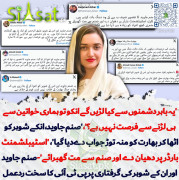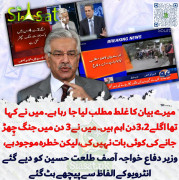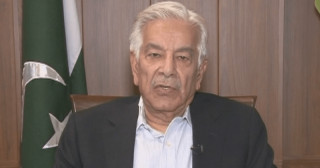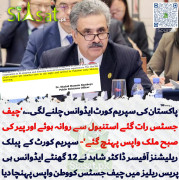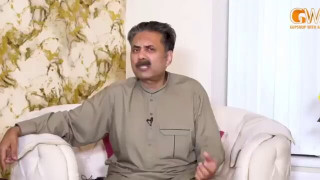Beloved brother in Islam, to assume that by invoking in the unseen the righteous imams, or the noble companions of the Holy Prophet (PBUH), or even the Noble Prophet (PBUH) himself, or invoking anyone in the Universe other than the One and Only True Lord of the Worlds, would be a clear and manifest form of the unforgivable crime of ‘shirk’ in Islam.
To assume that any of the pious departed slaves of Allah (SWT), or anyone else in creation other than Allah (SWT) Alone can hear one’s invocations in the unseen, let alone has the power and ability to answer them or get them answered, is a clear and manifest form of the most heinous of sins: ‘shirk’ with Allah. One of the Noble and Exclusive Attributes of Allah (SWT) is that He Alone is the All-Hearing. To assume that anyone or anything in creation can hear us in the unseen, let alone having the ability and power to answer or respond to our invocations, is to share one of Allah (SWT)’s Exclusive and Sole Attributes with one amongst His creation; and that is a clear and manifest form of the sin of ‘shirk’!
There is not a major Surah in the Quran, where Allah (SWT) has not warned the believers against this heinous practice and abomination of taking ‘wasila’, or invoking others with Allah (SWT) in the unseen! The noble and pious departed slaves of Allah (SWT) never advocated such a practice, nor did it behove them to do so!
Allah says in the Holy Quran Chapter 16 Surah Al Nahl verse 20-21:
Those whom they invoke besides Allah create nothing and are themselves created.
(They are things) dead, lifeless: nor do they know when they will be raised up.
Allah says in the Holy Quran Chapter 10 Surah Yunus verse 66:
Behold! verily to Allah belong all creatures, in the heavens and on earth. What do they follow who worship as His "partners" other than Allah. They follow nothing but fancy, and they do nothing but lie.
Allah says in the Holy Quran Chapter 35 Surah Fatir verses 13-14:
He merges Night into Day, and he merges Day into Night, and he has subjected the sun and the moon (to his Law): each one runs its course for a term appointed. Such is Allah your Lord: to Him belongs all Dominion. And those whom ye invoke besides Him have not the least power.
If ye invoke them, they will not listen to your call, and if they were to listen, they cannot answer your (prayer). On the Day of Judgment they will reject your "Partnership". and none, (O man!) can tell thee (the Truth) like the One Who is acquainted with all things.
Allah says in the Holy Quran Chapter 46 Surah Al Ahqaf verses 4-6:
Say: "Do ye see what it is ye invoke besides Allah. Show me what it is they have created on earth, or have they a share in the heavens bring me a book (revealed) before this, or any remnant of knowledge (ye may have), if ye are telling the truth!
And who is more astray than one who invokes besides Allah, such as will not answer him to the Day of Judgment, and who (in fact) are unconscious of their call (to them)?
And when mankind are gathered together (at the Resurrection), they will be hostile to them and reject their worship (altogether)!
Allah says in the Holy Quran Chapter 39 Surah Al Zumar verse 2-3:
Verily it is We Who have revealed the Book to thee in Truth: so serve Allah, offering Him sincere devotion.
Is it not to Allah that sincere devotion is due? But those who take for protectors other than Allah (say): "We only serve them in order that they may bring us nearer to Allah." Truly Allah will judge between them in that wherein they differ. But Allah guides not such as are false and ungrateful.
Allah says in the Holy Quran Chapter 10 Surah Yunus verse 18:
They serve, besides Allah, things that hurt them not nor profit them, and they say: "These are our intercessors with Allah." Say: "Do ye indeed inform Allah of something He knows not, in the heavens or on earth?- Glory to Him! and far is He above the partners they ascribe (to Him)!"
Allah says in the Holy Quran Chapter 19 Surah Maryam verses 81-82:
And they have taken (for worship) gods other than Allah, to give them power and glory!
Instead, they shall reject their worship, and become adversaries against them.
Allah says in the Holy Quran Chapter 16 Surah Al Nahl verses 86-87:
When those who gave partners to Allah will see their "partners", they will say: "Our Lord! these are our 'partners,' those whom we used to invoke besides Thee." But they will throw back their word at them (and say): "Indeed ye are liars!"
That Day shall they (openly) show (their) submission to Allah. and all their inventions shall leave them in the lurch.
Allah says in the Holy Quran Chapter 7 Surah Al A’raf verse 190-196:
But when He giveth them a goodly child, they ascribe to others a share in the gift they have received: but Allah is exalted high above the partners they ascribe to Him.
Do they indeed ascribe to Him as partners things that can create nothing, but are themselves created?
No aid can they give them, nor can they aid themselves!
If ye call them to guidance, they will not obey: For you it is the same whether ye call them or ye hold your peace!
Verily those whom ye call upon besides Allah are servants like unto you: Call upon them, and let them listen to your prayer, if ye are (indeed) truthful!
Have they feet to walk with? Or hands to lay hold with? Or eyes to see with? Or ears to hear with? Say: "Call your 'god-partners', scheme (your worst) against me, and give me no respite!
"For my Protector is Allah, Who revealed the Book (from time to time), and He will choose and befriend the righteous.
Invoking other beings in creation in the unseen is a clear manifestation of the abomination and ‘the’ most heinous of sins in the deen of Islam, that is, ‘shirk’! Allah (SWT) has singled out this one sin as absolutely ‘unforgivable’ on the Day of Judgment, and has guaranteed the everlasting and unending punishment of the Fire of Hell to all those who die in the state of ‘shirk’, no matter what amount of good deeds they might have done! Such is the gravity of this abomination of ‘shirk’ or invoking other beings in creation in the Sight of Allah (SWT), the One and Only Lord of the Worlds!
Allah says in the Holy Quran Chapter 5 Surah Al Ma’idah verse 72:
They do blaspheme who say: "(Allah) is Christ the son of Mary." But said Christ: "O Children of Israel! worship Allah, my Lord and your Lord." Whoever joins other gods with Allah,- Allah will forbid him the garden, and the Fire will be his abode. There will for the wrong-doers be no one to help.
Allah says in the Holy Quran Chapter 4 Surah Al Nisa Verse 48:
Allah forgiveth not that partners should be set up with Him; but He forgiveth anything else, to whom He pleaseth; to set up partners with Allah is to devise a sin Most heinous indeed.
Indeed, it is Allah (SWT) ALONE Who can and does hear, and respond to all our invocations. He Alone is the All-Hearing, All-Seeing, All-Knowing, and knows even the inner-most secrets and desires of our hearts. He Alone is the All-Mighty and All-Powerful, and He Alone has the Ability and Means to answer all our invocations. He Alone is our Creator and Sustainer, and He Alone deserves our invocations, our worship, our absolute obedience, and our total and absolute submission! And this is the precise Message of The Oneness of Allah (SWT) or ‘Tawheed’ that was taught by each and every Messenger of Allah to mankind.
Allah says in the Holy Quran Chapter 2 Surah Al Baqarah verse 186:
When My servants ask thee concerning Me, I am indeed close (to them): I listen to the prayer of every suppliant when he calleth on Me: Let them also, with a will, Listen to My call, and believe in Me: That they may walk in the right way.
Allah Says in the Holy Quran Chapter 5 Surah Al Ma’idah verse 35:
O ye who believe! Do your duty to Allah, seek the means of approach unto Him (wasila), and strive with might and main in his cause: that ye may prosper.
If one takes the term ‘wasila’ out of its original context to mean glorifying, serving, and invoking other beings in creation in the unseen as a way or approach to get things from Allah (SWT), that would be a clear and open manifestation of the abomination of ‘shirk’. Your ‘wasila’ should be your prayers, ibadaats, deeds
[FONT="]
Whatever written of Truth and benefit is only due to Allah’s Assistance and Guidance, and whatever of error is of me. Allah Alone Knows Best and He is the Only Source of Strength.[/FONT]
To assume that any of the pious departed slaves of Allah (SWT), or anyone else in creation other than Allah (SWT) Alone can hear one’s invocations in the unseen, let alone has the power and ability to answer them or get them answered, is a clear and manifest form of the most heinous of sins: ‘shirk’ with Allah. One of the Noble and Exclusive Attributes of Allah (SWT) is that He Alone is the All-Hearing. To assume that anyone or anything in creation can hear us in the unseen, let alone having the ability and power to answer or respond to our invocations, is to share one of Allah (SWT)’s Exclusive and Sole Attributes with one amongst His creation; and that is a clear and manifest form of the sin of ‘shirk’!
There is not a major Surah in the Quran, where Allah (SWT) has not warned the believers against this heinous practice and abomination of taking ‘wasila’, or invoking others with Allah (SWT) in the unseen! The noble and pious departed slaves of Allah (SWT) never advocated such a practice, nor did it behove them to do so!
Allah says in the Holy Quran Chapter 16 Surah Al Nahl verse 20-21:
وَالَّذِينَ يَدْعُونَ مِن دُونِ اللَّهِ لَا يَخْلُقُونَ شَيْئًا وَهُمْ يُخْلَقُونَ
Those whom they invoke besides Allah create nothing and are themselves created.
اور جنہیں الله کے سوا پکارتے ہیں وہ کچھ بھی پیدانہیں کرتے اور وہ خود پیدا کیے ہوئے ہیں
أَمْوَاتٌ غَيْرُ أَحْيَاءٍ ۖ وَمَا يَشْعُرُونَ أَيَّانَ يُبْعَثُونَ
(They are things) dead, lifeless: nor do they know when they will be raised up.
وہ تو مردے ہیں جن میں جان نہیں اور وہ نہیں جانتے کہ لوگ کب اٹھائے جائیں گے
Allah says in the Holy Quran Chapter 10 Surah Yunus verse 66:
أَلَا إِنَّ لِلَّهِ مَن فِي السَّمَاوَاتِ وَمَن فِي الْأَرْضِ ۗ وَمَا يَتَّبِعُ الَّذِينَ يَدْعُونَ مِن دُونِ اللَّهِ شُرَكَاءَ ۚ إِن يَتَّبِعُونَ إِلَّا الظَّنَّ وَإِنْ هُمْ إِلَّا يَخْرُصُونَ
Behold! verily to Allah belong all creatures, in the heavens and on earth. What do they follow who worship as His "partners" other than Allah. They follow nothing but fancy, and they do nothing but lie.
خبردار جو کوئی آسمانوں میں ہے اور جو کوئی زمین میں ہے سب الله کا ہے اور یہ جو الله کے سوا شریکوں کو پکارتے ہیں وہ نہیں پیروی کرتے مگر گمان کی اور نہیں ہیں وہ مگر اٹکل کرتے ہیں
Allah says in the Holy Quran Chapter 35 Surah Fatir verses 13-14:
يُولِجُ اللَّيْلَ فِي النَّهَارِ وَيُولِجُ النَّهَارَ فِي اللَّيْلِ وَسَخَّرَ الشَّمْسَ وَالْقَمَرَ كُلٌّ يَجْرِي لِأَجَلٍ مُّسَمًّى ۚ ذَ*ٰلِكُمُ اللَّهُ رَبُّكُمْ لَهُ الْمُلْكُ ۚ وَالَّذِينَ تَدْعُونَ مِن دُونِهِ مَا يَمْلِكُونَ مِن قِطْمِيرٍ
He merges Night into Day, and he merges Day into Night, and he has subjected the sun and the moon (to his Law): each one runs its course for a term appointed. Such is Allah your Lord: to Him belongs all Dominion. And those whom ye invoke besides Him have not the least power.
وہ رات کو دن میں داخل کرتا ہے اور دن کو رات میں داخل کرتا ہے اور اسی نے سورج اور چاند کو کام میں لگا رکھا ہے ہر ایک وقت مقرر تک چل رہا ہے یہی الله تمہارا رب ہے اسی کی بادشاہی ہے اور جنہیں تم اس کے سوا پکارتے ہو وہ ایک گھٹلی کے چھلکے کے مالک نہیں
إِن تَدْعُوهُمْ لَا يَسْمَعُوا دُعَاءَكُمْ وَلَوْ سَمِعُوا مَا اسْتَجَابُوا لَكُمْ ۖ وَيَوْمَ الْقِيَامَةِ يَكْفُرُونَ بِشِرْكِكُمْ ۚ وَلَا يُنَبِّئُكَ مِثْلُ خَبِيرٍ
If ye invoke them, they will not listen to your call, and if they were to listen, they cannot answer your (prayer). On the Day of Judgment they will reject your "Partnership". and none, (O man!) can tell thee (the Truth) like the One Who is acquainted with all things.
اگر تم انہیں پکارو تو وہ تمہاری پکار کو نہیں سنتے اور اگر وہ سن بھی لیں تو تمہیں جواب نہیں دیتے اور قیامت کے دن تمہارے شرک کا انکار کر دیں گے اور تمہیں خبر رکھنے والے کی طرح کوئی نہیں بتائے گا
Allah says in the Holy Quran Chapter 46 Surah Al Ahqaf verses 4-6:
قُلْ أَرَأَيْتُم مَّا تَدْعُونَ مِن دُونِ اللَّهِ أَرُونِي مَاذَا خَلَقُوا مِنَ الْأَرْضِ أَمْ لَهُمْ شِرْكٌ فِي السَّمَاوَاتِ ۖ ائْتُونِي بِكِتَابٍ مِّن قَبْلِ هَـٰذَا أَوْ أَثَارَةٍ مِّنْ عِلْمٍ إِن كُنتُمْ صَادِقِينَ
Say: "Do ye see what it is ye invoke besides Allah. Show me what it is they have created on earth, or have they a share in the heavens bring me a book (revealed) before this, or any remnant of knowledge (ye may have), if ye are telling the truth!
کہہ دو بھلا بتاؤ تو سہی جنہیں تم الله کے سوا پکارتے ہو مجھے دکھاؤ کہ انہوں نے زمین میں کون سی چیز پیدا کی ہے یا آسمانوں میں ان کا کوئی حصہ ہے میرے پاس اس سے پہلے کی کوئی کتاب لاؤ یا کوئی علم چلا آتا ہو وہ لاؤ اگر تم سچے ہو
وَمَنْ أَضَلُّ مِمَّن يَدْعُو مِن دُونِ اللَّهِ مَن لَّا يَسْتَجِيبُ لَهُ إِلَىٰ يَوْمِ الْقِيَامَةِ وَهُمْ عَن دُعَائِهِمْ غَافِلُونَ
And who is more astray than one who invokes besides Allah, such as will not answer him to the Day of Judgment, and who (in fact) are unconscious of their call (to them)?
اور اس سے بڑھ کر کون گمراہ ہے جو الله کےسوا اسےپکارتا ہے جو قیامت تک اس کے پکارنے کا جواب نہ دے سکے اور انہیں ان کے پکارنے کی خبر بھی نہ ہو
وَإِذَا حُشِرَ النَّاسُ كَانُوا لَهُمْ أَعْدَاءً وَكَانُوا بِعِبَادَتِهِمْ كَافِرِينَ
And when mankind are gathered together (at the Resurrection), they will be hostile to them and reject their worship (altogether)!
او ر جب لوگ جمع کئےجائیں گے تو وہ ان کے دشمن ہو جائیں گے اور ان کی عبادت کے منکر ہوں گے
Allah says in the Holy Quran Chapter 39 Surah Al Zumar verse 2-3:
إِنَّا أَنزَلْنَا إِلَيْكَ الْكِتَابَ بِالْحَقِّ فَاعْبُدِ اللَّهَ مُخْلِصًا لَّهُ الدِّينَ
Verily it is We Who have revealed the Book to thee in Truth: so serve Allah, offering Him sincere devotion.
بے شک ہم نے یہ کتاب ٹھیک طور پر آپ کی طرف نازل کی ہے پس تو خالص الله ہی کی فرمانبرداری مدِ نظر رکھ کر اسی کی عبادت کر
أَلَا لِلَّهِ الدِّينُ الْخَالِصُ ۚ وَالَّذِينَ اتَّخَذُوا مِن دُونِهِ أَوْلِيَاءَ مَا نَعْبُدُهُمْ إِلَّا لِيُقَرِّبُونَا إِلَى اللَّهِ زُلْفَىٰ إِنَّ اللَّهَ يَحْكُمُ بَيْنَهُمْ فِي مَا هُمْ فِيهِ يَخْتَلِفُونَ ۗ إِنَّ اللَّهَ لَا يَهْدِي مَنْ هُوَ كَاذِبٌ كَفَّارٌ
خبردار! خالص فرمانبرداری الله ہی کے لیے ہے جنہوں نے اس کے سوا اور کارساز بنا لیے ہیں ہم ان کی عبادت نہیں کرتے مگر اس لیے کہ وہ ہمیں الله سے قریب کر دیں بے شک الله ان کے درمیان ان باتوں میں فیصلہ کرے گا جن میں وہ اختلاف کرتےتھے بے شک الله اسے ہدایت نہیں کرتا جو جھوٹا ناشکرگزار ہو
Allah says in the Holy Quran Chapter 10 Surah Yunus verse 18:
وَيَعْبُدُونَ مِن دُونِ اللَّهِ مَا لَا يَضُرُّهُمْ وَلَا يَنفَعُهُمْ وَيَقُولُونَ هَـٰؤُلَاءِ شُفَعَاؤُنَا عِندَ اللَّهِ ۚ قُلْ أَتُنَبِّئُونَ اللَّهَ بِمَا لَا يَعْلَمُ فِي السَّمَاوَاتِ وَلَا فِي الْأَرْضِ ۚ سُبْحَانَهُ وَتَعَالَىٰ عَمَّا يُشْرِكُونَ
They serve, besides Allah, things that hurt them not nor profit them, and they say: "These are our intercessors with Allah." Say: "Do ye indeed inform Allah of something He knows not, in the heavens or on earth?- Glory to Him! and far is He above the partners they ascribe (to Him)!"
اور الله کے سوا اس چیز کی پرستش کرتے ہیں جونہ انہیں نقصان پہنچا سکے اورنہ انہیں نفع دے سکے اور کہتے ہیں الله کے ہاں یہ ہمارے سفارشی ہیں کہہ دو کیا تم الله کو بتلاتے ہو جو اسے آسمانوں اور زمین میں معلوم نہیں وہ پاک ہے اوران لوگو ں کے شرک سے بلند ہے
Allah says in the Holy Quran Chapter 19 Surah Maryam verses 81-82:
وَاتَّخَذُوا مِن دُونِ اللَّهِ آلِهَةً لِّيَكُونُوا لَهُمْ عِزًّا
And they have taken (for worship) gods other than Allah, to give them power and glory!
اور انہوں نے الله کے سوا معبود بنا لیے ہیں تاکہ وہ ان کے مددگار ہوں
كَلَّا ۚ سَيَكْفُرُونَ بِعِبَادَتِهِمْ وَيَكُونُونَ عَلَيْهِمْ ضِدًّا
Instead, they shall reject their worship, and become adversaries against them.
ہرگز نہیں وہ جلد ہی ان کی عبادت کا انکار کریں گے اور ان کے مخالف ہوجائیں گے
Allah says in the Holy Quran Chapter 16 Surah Al Nahl verses 86-87:
وَإِذَا رَأَى الَّذِينَ أَشْرَكُوا شُرَكَاءَهُمْ قَالُوا رَبَّنَا هَـٰؤُلَاءِ شُرَكَاؤُنَا الَّذِينَ كُنَّا نَدْعُو مِن دُونِكَ ۖ فَأَلْقَوْا إِلَيْهِمُ الْقَوْلَ إِنَّكُمْ لَكَاذِبُونَ
When those who gave partners to Allah will see their "partners", they will say: "Our Lord! these are our 'partners,' those whom we used to invoke besides Thee." But they will throw back their word at them (and say): "Indeed ye are liars!"
اور جب مشرک اپنے شریکوں کو دیکھیں گے تو کہیں گے اے ہمارے رب! یہی ہمارے شریک ہیں جنہیں ہم تیرے سوا پکارتے تھے پھر وہ انہیں جواب دیں گے کہ تم سراسر جھوٹے ہو
وَأَلْقَوْا إِلَى اللَّهِ يَوْمَئِذٍ السَّلَمَ ۖ وَضَلَّ عَنْهُم مَّا كَانُوا يَفْتَرُونَ
That Day shall they (openly) show (their) submission to Allah. and all their inventions shall leave them in the lurch.
اور وہ اس دن الله کے سامنے سر جھکا دیں گے اور بھول جائیں گے وہ جو جھوٹ بناتے تھے
Allah says in the Holy Quran Chapter 7 Surah Al A’raf verse 190-196:
فَلَمَّا آتَاهُمَا صَالِحًا جَعَلَا لَهُ شُرَكَاءَ فِيمَا آتَاهُمَا ۚ فَتَعَالَى اللَّهُ عَمَّا يُشْرِكُونَ
But when He giveth them a goodly child, they ascribe to others a share in the gift they have received: but Allah is exalted high above the partners they ascribe to Him.
پھر جب الله نے انکو صحیح سالم اولاد دی تو الله کی دی ہوئی چیزوں میں وہ دونوں الله کا شریک بنانے لگے سو الله ان کے شرک سے پاک ہے
أَيُشْرِكُونَ مَا لَا يَخْلُقُ شَيْئًا وَهُمْ يُخْلَقُونَ
Do they indeed ascribe to Him as partners things that can create nothing, but are themselves created?
کیا ایسوں کو شریک بناتے ہیں جو کچھ بھھی نہیں بنا سکتے اور وہ خود بنائے ہوئے ہیں
وَلَا يَسْتَطِيعُونَ لَهُمْ نَصْرًا وَلَا أَنفُسَهُمْ يَنصُرُونَ
No aid can they give them, nor can they aid themselves!
اور نہ وہ ان کی مدد کر سکتے ہیں اور نہ اپنی ہی مدد کر سکتے ہیں
وَإِن تَدْعُوهُمْ إِلَى الْهُدَىٰ لَا يَتَّبِعُوكُمْ ۚ سَوَاءٌ عَلَيْكُمْ أَدَعَوْتُمُوهُمْ أَمْ أَنتُمْ صَامِتُونَ
If ye call them to guidance, they will not obey: For you it is the same whether ye call them or ye hold your peace!
اور اگر تم انہیں راستہ کی طرف بلاؤ تو تمہاری تابعداری نہ کریں برابر ہے کہ تم انہیں پکارو یا چپکے رہو
إِنَّ الَّذِينَ تَدْعُونَ مِن دُونِ اللَّهِ عِبَادٌ أَمْثَالُكُمْ ۖ فَادْعُوهُمْ فَلْيَسْتَجِيبُوا لَكُمْ إِن كُنتُمْ صَادِقِينَ
Verily those whom ye call upon besides Allah are servants like unto you: Call upon them, and let them listen to your prayer, if ye are (indeed) truthful!
بے شک جنہیں تم الله کے سوا پکارتے ہو وہ تمہاری طرح کے بندے ہیں پھر انہیں پکار کر دیکھو پھر چاہے کہ وہ تمہاری پکار کو قبول کریں اگر تم سچے ہو
أَلَهُمْ أَرْجُلٌ يَمْشُونَ بِهَا ۖ أَمْ لَهُمْ أَيْدٍ يَبْطِشُونَ بِهَا ۖ أَمْ لَهُمْ أَعْيُنٌ يُبْصِرُونَ بِهَا ۖ أَمْ لَهُمْ آذَانٌ يَسْمَعُونَ بِهَا ۗ قُلِ ادْعُوا شُرَكَاءَكُمْ ثُمَّ كِيدُونِ فَلَا تُنظِرُونِ
Have they feet to walk with? Or hands to lay hold with? Or eyes to see with? Or ears to hear with? Say: "Call your 'god-partners', scheme (your worst) against me, and give me no respite!
کیا ان کے پاؤں ہیں جن سے وہ چلیں یا ان کے ہاتھ ہیں جن سے وہ پکڑیں یا ان کی آنکھیں ہیں جن سے وہ دیکھیں یا ان کے کان ہیں جن سے وہ سنیں کہ تو اپنے شریکوں کو پکارو پھر میری برائی کی تدبیر کرو پھر مجھے ذرا مہلت نہ دو
إِنَّ وَلِيِّيَ اللَّهُ الَّذِي نَزَّلَ الْكِتَابَ ۖ وَهُوَ يَتَوَلَّى الصَّالِحِينَ
"For my Protector is Allah, Who revealed the Book (from time to time), and He will choose and befriend the righteous.
بےشک میرا حمایتی الله ہے جس نے کتاب نازل فرمائی اور وہ نیکو کاروں کی حمایت کرتا ہے
Invoking other beings in creation in the unseen is a clear manifestation of the abomination and ‘the’ most heinous of sins in the deen of Islam, that is, ‘shirk’! Allah (SWT) has singled out this one sin as absolutely ‘unforgivable’ on the Day of Judgment, and has guaranteed the everlasting and unending punishment of the Fire of Hell to all those who die in the state of ‘shirk’, no matter what amount of good deeds they might have done! Such is the gravity of this abomination of ‘shirk’ or invoking other beings in creation in the Sight of Allah (SWT), the One and Only Lord of the Worlds!
Allah says in the Holy Quran Chapter 5 Surah Al Ma’idah verse 72:
لَقَدْ كَفَرَ الَّذِينَ قَالُوا إِنَّ اللَّهَ هُوَ الْمَسِيحُ ابْنُ مَرْيَمَ ۖ وَقَالَ الْمَسِيحُ يَا بَنِي إِسْرَائِيلَ اعْبُدُوا اللَّهَ رَبِّي وَرَبَّكُمْ ۖ إِنَّهُ مَن يُشْرِكْ بِاللَّهِ فَقَدْ حَرَّمَ اللَّهُ عَلَيْهِ الْجَنَّةَ وَمَأْوَاهُ النَّارُ ۖ وَمَا لِلظَّالِمِينَ مِنْ أَنصَارٍ
They do blaspheme who say: "(Allah) is Christ the son of Mary." But said Christ: "O Children of Israel! worship Allah, my Lord and your Lord." Whoever joins other gods with Allah,- Allah will forbid him the garden, and the Fire will be his abode. There will for the wrong-doers be no one to help.
البتہ تحقیق وہ لوگ کافر ہوئے جنہوں نے کہا بے شک الله وہی مسیح مرین کا بیٹا ہی ہے حالانکہ مسیح نے کہا اے بنی اسرائیل اس الله کی بندگی کرو جو میرا اور تمہارا رب ہے بے شک جس نے الله کا شریک ٹھیرایا سو الله نے اس پر جنت حرام کی اور اس کا ٹھکانا دوزخ ہے اور ظالموں کا کوئی مددگار نہیں ہو گا
Allah says in the Holy Quran Chapter 4 Surah Al Nisa Verse 48:
إِنَّ اللَّهَ لَا يَغْفِرُ أَن يُشْرَكَ بِهِ وَيَغْفِرُ مَا دُونَ ذَ*ٰلِكَ لِمَن يَشَاءُ ۚ وَمَن يُشْرِكْ بِاللَّهِ فَقَدِ افْتَرَىٰ إِثْمًا عَظِيمًا
Allah forgiveth not that partners should be set up with Him; but He forgiveth anything else, to whom He pleaseth; to set up partners with Allah is to devise a sin Most heinous indeed.
بے شک الله اسے نہیں بخشتا جو اس کا شریک کرے اور شرک کے ماسوا دوسرےگناہ جسے چاہے بخشتا ہے اور جس نے الله کا شریک ٹھیرایا اس نے بڑا ہی گناہ کیا
Indeed, it is Allah (SWT) ALONE Who can and does hear, and respond to all our invocations. He Alone is the All-Hearing, All-Seeing, All-Knowing, and knows even the inner-most secrets and desires of our hearts. He Alone is the All-Mighty and All-Powerful, and He Alone has the Ability and Means to answer all our invocations. He Alone is our Creator and Sustainer, and He Alone deserves our invocations, our worship, our absolute obedience, and our total and absolute submission! And this is the precise Message of The Oneness of Allah (SWT) or ‘Tawheed’ that was taught by each and every Messenger of Allah to mankind.
Allah says in the Holy Quran Chapter 2 Surah Al Baqarah verse 186:
وَإِذَا سَأَلَكَ عِبَادِي عَنِّي فَإِنِّي قَرِيبٌ ۖ أُجِيبُ دَعْوَةَ الدَّاعِ إِذَا دَعَانِ ۖ فَلْيَسْتَجِيبُوا لِي وَلْيُؤْمِنُوا بِي لَعَلَّهُمْ يَرْشُدُونَ
When My servants ask thee concerning Me, I am indeed close (to them): I listen to the prayer of every suppliant when he calleth on Me: Let them also, with a will, Listen to My call, and believe in Me: That they may walk in the right way.
اور جب آپ سےمیرے بندے میرے متعلق سوال کریں تو میں نزدیک ہوں دعاا کرنے والے کی دعا قبول کرتا ہوں جب وہ مجھے پکارتا ہے پھر چاہیئے کہ میرا حکم مانیں اور مجھ پر ایمان لائیں تاکہ وہ ہدایت پائیں
If one takes the term ‘wasila’ to mean a way or approach to get close to Allah (SWT) with one’s ‘taqwa’ or God-consciousness and ones own righteous good deeds; that is a state highly recommended by Allah (SWT).Allah Says in the Holy Quran Chapter 5 Surah Al Ma’idah verse 35:
يَا أَيُّهَا الَّذِينَ آمَنُوا اتَّقُوا اللَّهَ وَابْتَغُوا إِلَيْهِ الْوَسِيلَةَ وَجَاهِدُوا فِي سَبِيلِهِ لَعَلَّكُمْ تُفْلِحُونَ
O ye who believe! Do your duty to Allah, seek the means of approach unto Him (wasila), and strive with might and main in his cause: that ye may prosper.
اے ایمان والو الله سے ڈرو اور الله کا قرب تلاش کرو اور الله کی راہ میں جہاد کرو تاکہ تم کامیاب ہو جاؤ
If one takes the term ‘wasila’ out of its original context to mean glorifying, serving, and invoking other beings in creation in the unseen as a way or approach to get things from Allah (SWT), that would be a clear and open manifestation of the abomination of ‘shirk’. Your ‘wasila’ should be your prayers, ibadaats, deeds
[FONT="]
Whatever written of Truth and benefit is only due to Allah’s Assistance and Guidance, and whatever of error is of me. Allah Alone Knows Best and He is the Only Source of Strength.[/FONT]
Last edited:


